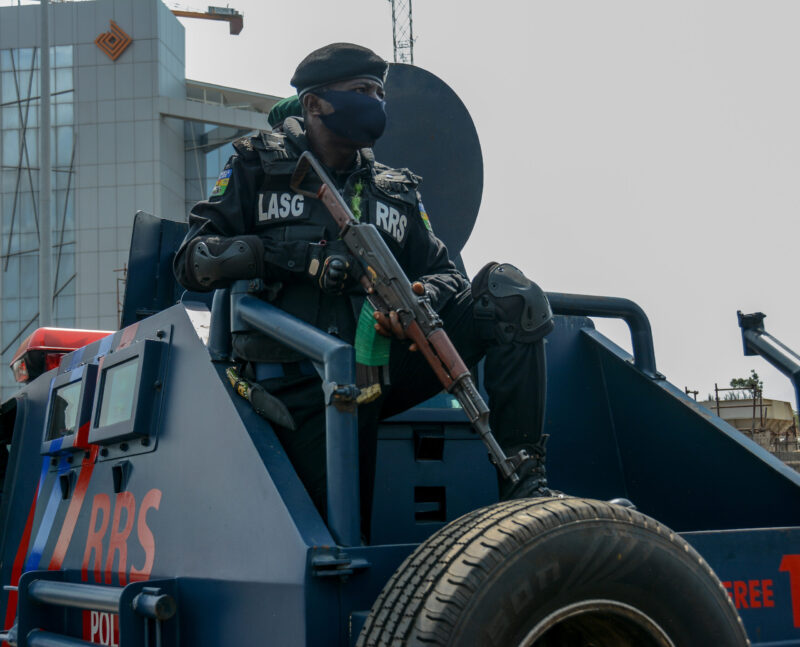The Modern Memo may be compensated and/or receive an affiliate commission if you click or buy through our links. Featured pricing is subject to change.
Imagine being asleep in a quiet boarding school, only to be jolted awake by gunfire before the sun even rises. That’s exactly what happened to dozens of girls in northwest Nigeria when armed men stormed their school around 4 a.m. According to Fox News, the attackers didn’t hesitate. They went straight through the campus with deadly intent, killing a staff member and a guard before reaching the building where the girls slept.
When the chaos settled, 25 girls had been taken. The attackers vanished into the darkness just as quickly as they arrived, leaving behind terrified students, grieving staff, and shocked families. It’s the kind of incident that makes every parent’s heart drop — and sadly, it’s not the first time something like this has happened in the region.
Coordinated Tactics Used by the Attackers
The details coming out of this incident paint a picture of a group that knew exactly what it was doing. Witnesses told authorities that the men arrived on motorcycles, which is a common tactic in rural Nigeria because it lets attackers slip in and out without relying on major roads.
They were also carrying what officials described as “sophisticated weapons.” This detail suggests the operation was not random. Instead, it points to planning, coordination, and possible support from larger criminal networks.
The attackers moved fast, took out the people who could fight back, and then focused on the students. Their precision made it clear that this wasn’t random violence. This was a calculated operation.
More Stories
Government Launches Urgent Rescue Mission
As soon as news of the kidnapping reached authorities, security forces launched what they called a “massive search-and-rescue operation.” They’re searching forests, trails, and the remote areas where these groups often hide victims.
Nigeria’s Information Minister, Mohamed Idris, stressed that the attackers don’t care about religious or ethnic identity. In his words, “These criminals attack anyone they believe is vulnerable.”
Even though the government is responding quickly, rescue missions like these are extremely challenging. The terrain is difficult, the attackers move constantly, and the victims are often taken far from the attack site.

Kidnapping Highlights a Troubling History
This kidnapping immediately brought back memories of previous tragedies. The most infamous occurred in 2014, when more than 200 schoolgirls were abducted from the town of Chibok. Since then, the region has faced repeated mass kidnappings.
In 2024, more than 280 schoolchildren were taken in Kaduna State. That same year, over 200 displaced women and children were kidnapped in Borno State while gathering firewood.
These repeated incidents show how deeply rooted the problem has become. Kidnappings are no longer isolated crises. They are a recurring threat that hangs over families, educators, and entire communities.
Why Schools Remain High-Risk Targets
Schools in northern Nigeria face several challenges that make them easy targets. Many operate in remote areas with limited security. Guards often lack training and proper weapons. This leaves schools vulnerable when faced with heavily armed attackers.
Girls’ schools carry symbolic weight. Educating girls represents progress, independence, and opportunity — all things extremist or criminal groups may want to disrupt.
But the biggest reason is money. Kidnapping has become a profitable industry. Even when governments refuse to negotiate, communities sometimes raise funds to free their loved ones.
Impact on Families, Communities, and Education
Every time a school is attacked, fear spreads through nearby villages. Parents begin questioning whether it’s worth sending their children — especially daughters — back to class.
For the girls who return or witness the attacks, the trauma can last for years. Some struggle with nightmares. Others develop anxiety or lose interest in school entirely.
Local businesses feel the strain too. People stay indoors more often, markets close earlier, and farmers avoid remote fields. Life becomes restricted because everyone is constantly looking over their shoulder.
Long-Term Measures Needed to Improve Security
As the search effort continues, many Nigerians want the government to focus on prevention just as much as rescue operations. They want better security at schools, stronger intelligence-gathering, and better cooperation between federal and local authorities.
While military responses are important, experts say they won’t be enough on their own. Nigeria needs long-term strategies that involve education, economic improvements, and community programs that reduce the appeal of joining armed groups.
Schools must become safe places again. Without that, progress — especially for girls — becomes nearly impossible.
The Takeaway
The kidnapping of these 25 girls highlights how vulnerable many communities in northern Nigeria still are. Families are left waiting for answers, and schools continue to operate under constant fear of becoming the next target.
Each new attack exposes gaps in security that can no longer be ignored. Stronger protections, better resources, and consistent support from leaders at every level are essential if real change is going to happen.
Parents want more than promises. They want their children to be able to attend school without risking their lives. Until meaningful, long-term solutions are put in place, the cycle of fear and uncertainty will continue — and the future of girls’ education will remain at risk.
Forget the Headlines. Challenge the Script. Deliver the Truth.
At The Modern Memo, we don’t tiptoe through talking points — we swing a machete through the media’s favorite lies.
They protect power. We confront it.
If you’re sick of censorship, narrative control, and being told what to think — stand with us.
Subscribe to The Modern Memo here!








